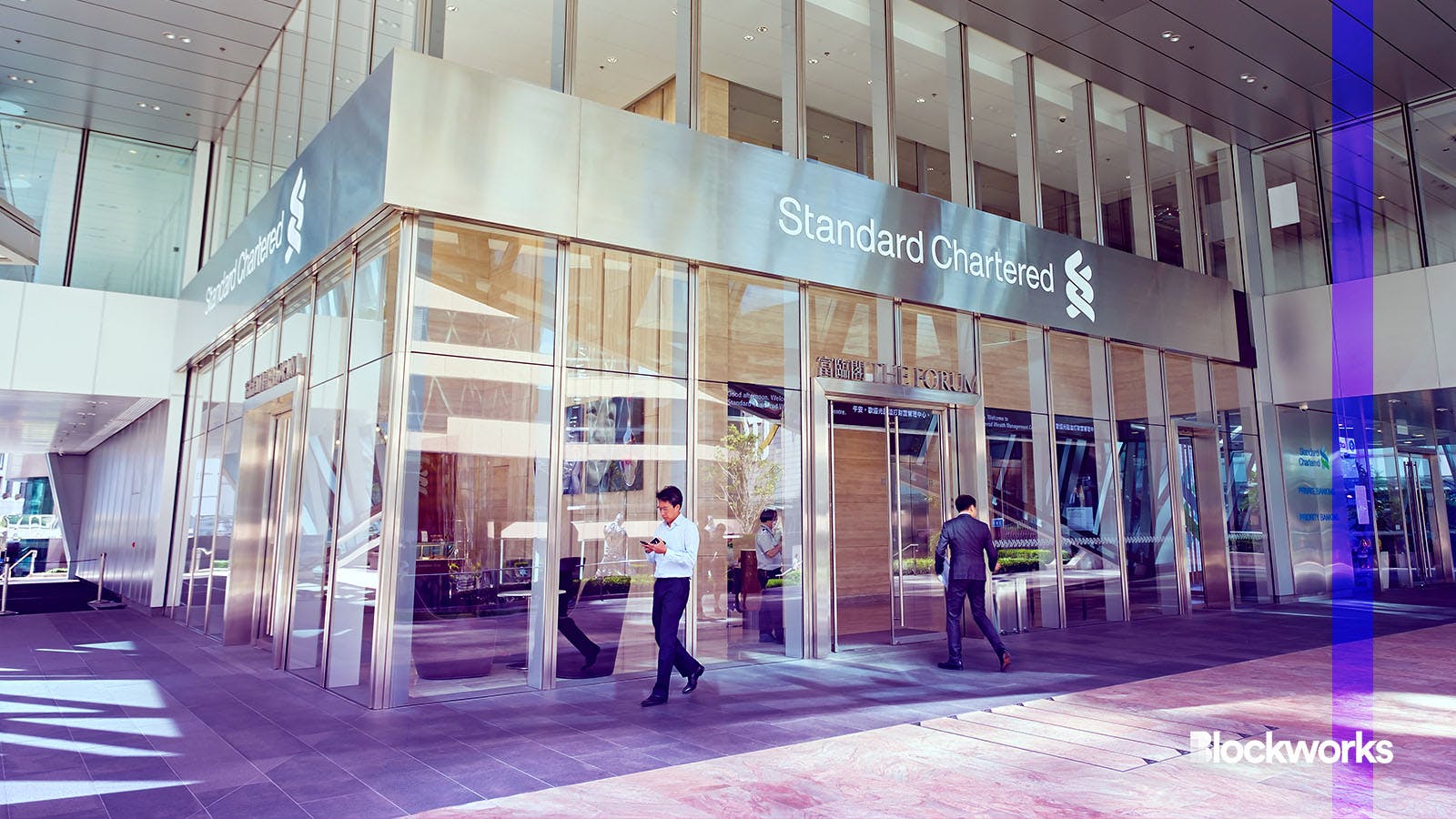StanChart’s Zodia Custody set to navigate Hong Kong’s crypto market
Hong Kong’s institution-driven crypto demand makes it a prime market for Zodia Custody, CEO Julian Sawyer told CNBC

Daniel Fung/Shutterstock, modified by Blockworks
Zodia Custody, a crypto subsidiary of British bank Standard Chartered, is set to roll out its crypto storage services in Hong Kong, following the region’s recent introduction of a new licensing system.
The expansion signifies the UK-based company’s growing presence in the Asia Pacific area.
Zodia Custody’s CEO Julian Sawyer said that Hong Kong’s crypto demand, which is primarily from institutions rather than retail users, aligns well with the firm’s offerings, CNBC reported on Sunday.
Having already established operations in Singapore, Japan and Australia, Hong Kong completes the company’s expansion throughout the Asia Pacific, he said.
Blockworks has reached out to Zodia Custody for comment.
Zodia Custody is owned by Standard Chartered, Northern Trust and SBI, and is registered with regulatory authorities in the UK, Ireland and Luxembourg.
Launched in Dec. 2020, it aims to deliver crypto custody solutions for institutional and corporate clientele, tapping into the banking know-how of Standard Chartered and Northern Trust to maintain compliant digital asset management and storage.
It operates separately from Zodia Markets, a digital asset exchange and brokerage also backed by Standard Chartered.
Since Hong Kong regulators introduced their licensing program, there’s been a surge in digital asset operators, including exchanges, looking to establish a presence there.
Following a significant scandal involving the JPEX crypto exchange, which reportedly impacted over 2,000 individuals, Hong Kong’s central bank and securities regulator have strengthened crypto regulations.
The updated rules now stipulate that certain virtual currencies can only be accessed by professional investors.
Earlier this year, Bloomberg reported that Beijing is quietly backing Hong Kong’s efforts to emerge as a digital asset center, with officials monitoring crypto industry progress.
Currently, OSL Digital Securities and Hash Blockchain are the only licensed virtual asset trading platforms in Hong Kong.
Zodia Custody is said to be in talks with Hong Kong’s central bank and securities regulator about becoming regulated in the region, per CNBC.
The company intends to adopt a step-by-step approach, initially offering a select range of cryptocurrencies to clients in Hong Kong.
Start your day with top crypto insights from David Canellis and Katherine Ross. Subscribe to the Empire newsletter.





